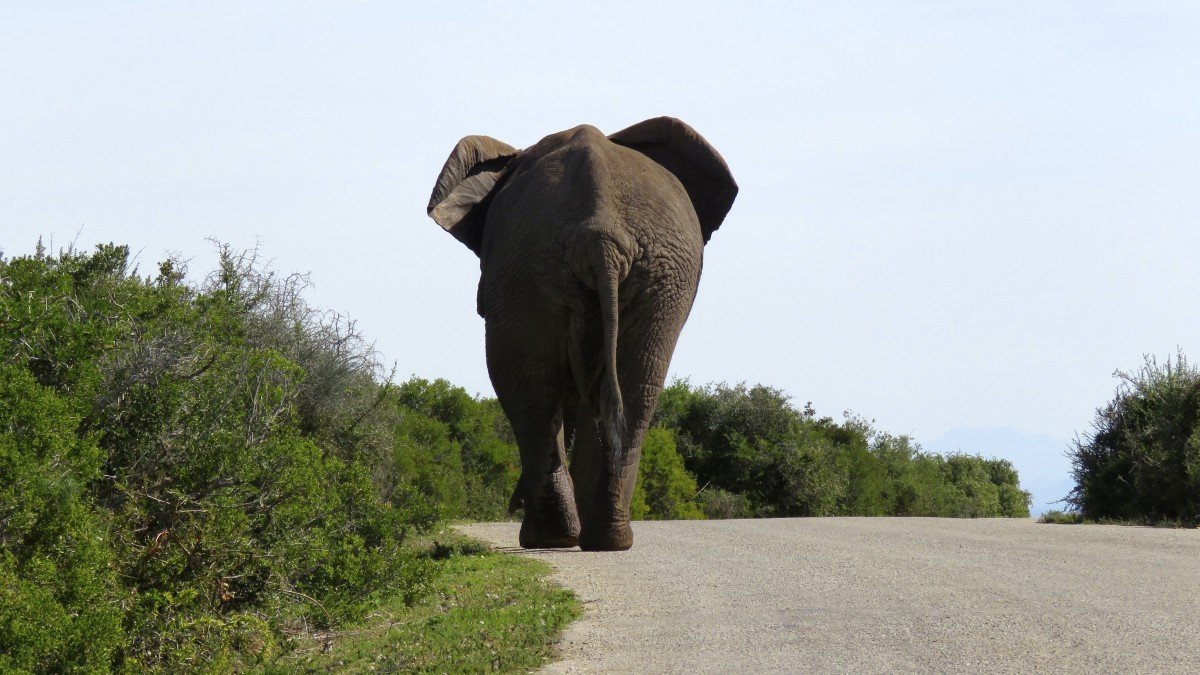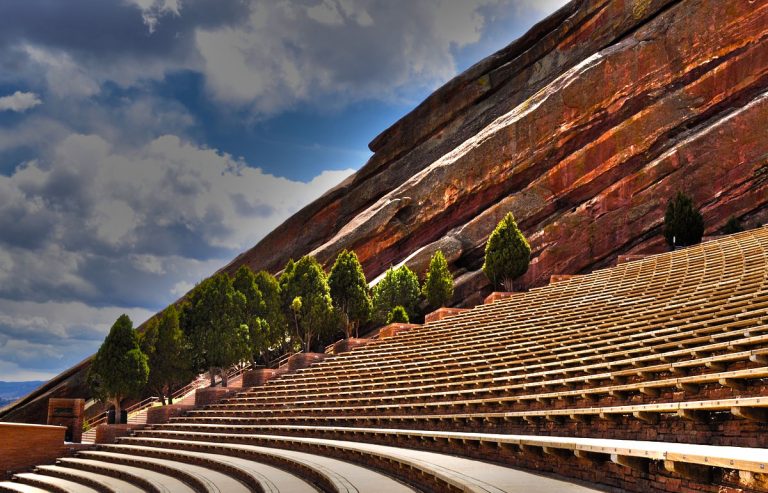The Defeat of King Og
3 “Then we turned and went up the way to Bashan. And Og the king of Bashan came out against us, he and all his people, to battle at Edrei. But the LORD said to me, ‘Do not fear him, for I have given him and all his people and his land into your hand. And you shall do to him as you did to Sihon the king of the Amorites, who lived at Heshbon.’ So the LORD our God gave into our hand Og also, the king of Bashan, and all his people, and we struck him down until he had no survivor left. And we took all his cities at that time—there was not a city that we did not take from them—sixty cities, the whole region of Argob, the kingdom of Og in Bashan. All these were cities fortified with high walls, gates, and bars, besides very many unwalled villages. And we devoted them to destruction, as we did to Sihon the king of Heshbon, devoting to destruction every city, men, women, and children. But all the livestock and the spoil of the cities we took as our plunder. So we took the land at that time out of the hand of the two kings of the Amorites who were beyond the Jordan, from the Valley of the Arnon to Mount Hermon (the Sidonians call Hermon Sirion, while the Amorites call it Senir), all the cities of the tableland and all Gilead and all Bashan, as far as Salecah and Edrei, cities of the kingdom of Og in Bashan. (For only Og the king of Bashan was left of the remnant of the Rephaim. Behold, his bed was a bed of iron. Is it not in Rabbah of the Ammonites? Nine cubits was its length, and four cubits its breadth, according to the common cubit.)
“When we took possession of this land at that time, I gave to the Reubenites and the Gadites the territory beginning at Aroer, which is on the edge of the Valley of the Arnon, and half the hill country of Gilead with its cities. The rest of Gilead, and all Bashan, the kingdom of Og, that is, all the region of Argob, I gave to the half-tribe of Manasseh. (All that portion of Bashan is called the land of Rephaim. Jair the Manassite took all the region of Argob, that is, Bashan, as far as the border of the Geshurites and the Maacathites, and called the villages after his own name, Havvoth-jair, as it is to this day.) To Machir I gave Gilead, and to the Reubenites and the Gadites I gave the territory from Gilead as far as the Valley of the Arnon, with the middle of the valley as a border, as far over as the river Jabbok, the border of the Ammonites; the Arabah also, with the Jordan as the border, from Chinnereth as far as the Sea of the Arabah, the Salt Sea, under the slopes of Pisgah on the east.
“And I commanded you at that time, saying, ‘The LORD your God has given you this land to possess. All your men of valor shall cross over armed before your brothers, the people of Israel. Only your wives, your little ones, and your livestock (I know that you have much livestock) shall remain in the cities that I have given you, until the LORD gives rest to your brothers, as to you, and they also occupy the land that the LORD your God gives them beyond the Jordan. Then each of you may return to his possession which I have given you.’ And I commanded Joshua at that time, ‘Your eyes have seen all that the LORD your God has done to these two kings. So will the LORD do to all the kingdoms into which you are crossing. You shall not fear them, for it is the LORD your God who fights for you.’
Moses Forbidden to Enter the Land
“And I pleaded with the LORD at that time, saying, ‘O Lord GOD, you have only begun to show your servant your greatness and your mighty hand. For what god is there in heaven or on earth who can do such works and mighty acts as yours? Please let me go over and see the good land beyond the Jordan, that good hill country and Lebanon.’ But the LORD was angry with me because of you and would not listen to me. And the LORD said to me, ‘Enough from you; do not speak to me of this matter again. Go up to the top of Pisgah and lift up your eyes westward and northward and southward and eastward, and look at it with your eyes, for you shall not go over this Jordan. But charge Joshua, and encourage and strengthen him, for he shall go over at the head of this people, and he shall put them in possession of the land that you shall see.’ So we remained in the valley opposite Beth-peor.
(ESV)
Deuteronomy 3 Commentary
by Brad Boyles
They told Moses, “We explored the land and found it to be rich and fertile; and here is some of its fruit. 28 But the people who live there are powerful, and their cities are very large and well fortified. Even worse, we saw the descendants of the giants there.
Numbers 13:27-28 GNB
The giants the people were referring to were called Rephaim. These larger-than-life warriors were dispersed all throughout Canaan, and the Bible uses many terms to describe them including Nephilim, Zuzim, Emim, and Anakim. Based on Genesis 6:1–4, one perspective is that fallen angels (the sons of God) had sexual relations with women, resulting in the birth of the Nephilim (more on this later). We do not know if the Raphaim were remnants of the Nephilim or not, but the main fact to take away is that they were gigantic, fearsome warriors. Even ancient Egyptian documents refer to giants who lived in Canaan.
These people were led by Og king of Bashan. Deuteronomy 3:11 states that his coffin was made of iron and measured 13 feet 6 inches long by 6 feet wide. He was truly a giant! The problem with the former generation was that they were terrified of these “giants” and did not believe God would lead them to victory.
Spiritual Warfare
The Rephaim represented the spiritual resistance that has existed since creation began. As I mentioned, in Genesis 6, the created spiritual beings (sons of God) rebelled against Him. There is strong biblical evidence that the “sons of God” are part of God’s heavenly host and distinct from humans (Job 1:6; Psalm 82). Jude writes of how these spiritual beings were disobedient and left their proper domain, engaging in inappropriate relations with human women (daughters of men).
“Now I want to remind you, although you came to know all these things once and for all, that Jesus saved a people out of Egypt and later destroyed those who did not believe; [6] and the angels who did not keep their own position but abandoned their proper dwelling, he has kept in eternal chains in deep darkness for the judgment on the great day. [7] Likewise, Sodom and Gomorrah and the surrounding towns committed sexual immorality and perversions, and serve as an example by undergoing the punishment of eternal fire.”
Jude 1:5-7 CSB
Notice the comparison to Sodom and Gomorrah and the perversion that occurred there. So, what’s the point? The Israelites’ fear of these giants is not just about physical size but is also tied to the supernatural implications of their existence. The giants were seen as manifestations of a spiritual threat, representing both physical might and a legacy of divine rebellion. The giants were not merely large humans but were viewed as beings associated with spiritual warfare. They are attempting to disrupt the plans of God by injecting fear into the children of God, and the same is true today.
Not all of Israel was fearful, though.
Then Caleb quieted the people in the presence of Moses and said, “We must go up and take possession of the land because we can certainly conquer it!” 31 But the men who had gone up with him responded, “We can’t go up against the people because they are stronger than we are!”
Numbers 13:30-31 HCSB
Caleb was full of faith, but the majority shouted him down. As we see here in Deuteronomy 3, their fear was unfounded. The enemy cannot thwart God’s plans.
God leads people who trust Him into battles they have no business fighting. He does this for His glory, to reveal to us that He is over all things and that no one can overcome His plans. He wants to use humans to restore and reveal His glory to the cosmos. This is such an interesting aspect of God’s character. The promise to defeat His enemies and lead His people into the Promised Land was guaranteed. It was His sovereign plan.
However, we also see that God will not force us to trust and obey that plan. The first generation didn’t trust Him, so… He waited… and waited… and waited.
- God’s plans will never fail.
- If we don’t trust Him, He will patiently wait until we repent or perish.
Our God is a patient God. Repentance was always an option for the older generation of Numbers. They could have changed their mind and their behavior and turned back to God. Instead, they perished. As this new generation sprung up, they decided to put their full trust in God, and the results speak for themselves here in Deuteronomy 3. God led them to slay the giants.
Who are the giants in your life that you are fearful of? What plan of God is possibly being delayed because you don’t trust Him? Our God is a patient and loving God. He meets us where we are and calls us forward despite our fears. What does this mean for you today?




